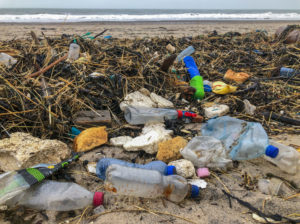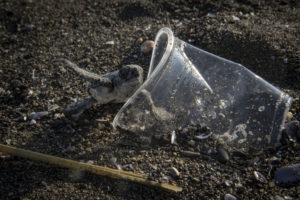-
Space and Astronomy
- Mars: Just the Beginning? – Lesson
- Mars: Just the Beginning? – Quiz
- Six Billion ‘Earth-like’ Planets in the Milky Way Galaxy? – Lesson
- Six Billion ‘Earth-like’ Planets in the Milky Way Galaxy? – Quiz
- Did NASA Scientists Find Another Universe? – Lesson
- Did NASA Scientists Find Another Universe? – Quiz
- A New Planet Was Discovered – And Old Theories Must Change – Lesson
- A New Planet Was Discovered – And Old Theories Must Change – Quiz
- SpaceX Completes First Civilian Trip to Space – Lesson
- SpaceX Completes First Civilian Trip to Space – Quiz
- First Movie Filmed in Space Successful – Lesson
- First Movie Filmed in Space Successful – Quiz
- James Webb Telescope Heads to Deep Space – Lesson
- James Webb Telescope Heads to Deep Space – Quiz
- A Lot Is Happening on and Around the Moon – Lesson
- A Lot Is Happening on and Around the Moon – Quiz
- First-Ever Picture Taken of the Milky Way’s Black Hole – Lesson
- First-Ever Picture Taken of the Milky Way’s Black Hole – Quiz
- First James Webb Telescope Images Revealed – Lesson
- First James Webb Telescope Images Revealed – Quiz
- Buzz Aldrin Sells Jacket from the Moon Landing – Lesson
- Buzz Aldrin Sells Jacket from the Moon Landing – Quiz
- Humans at Home on the Moon – Could It Really Happen in This Decade? – Lesson
- Humans at Home on the Moon – Could It Really Happen in This Decade? – Quiz
- Winter on Mars – Lesson
- Winter on Mars – Quiz
- Pictures of Mars Show Hidden Figures – Lesson
- Pictures of Mars Show Hidden Figures – Quiz
- Jupiter and Venus Appear to ‘Kiss’ – Lesson
- Jupiter and Venus Appear to ‘Kiss’ – Quiz
- The James Webb Telescope Finds Six Ancient Galaxies – Lesson
- The James Webb Telescope Finds Six Ancient Galaxies – Quiz
- Would an EpiPen Work in Space? – Lesson
- Would an EpiPen Work in Space? – Quiz
- Satellite Spots Earth’s Second Moon? – Lesson
- Satellite Spots Earth’s Second Moon? – Quiz
- Space Mining – The Race is On and China is Leading – Lesson
- Space Mining – The Race is On and China is Leading – Quiz
- How Did Gold and Platinum Arrive on Earth – Lesson
- How Did Gold and Platinum Arrive on Earth – Quiz
-
The Environment
- Red Tide: No Fun in the Florida Sun – Lesson
- Red Tide: No Fun in the Florida Sun – Quiz
- Leaded Gas Eradicated from the World, Says United Nations – Lesson
- Leaded Gas Eradicated from the World, Says United Nations – Quiz
- COVID Plastic Waste: A Big Problem for Oceans – Lesson
- COVID Plastic Waste: A Big Problem for Oceans – Quiz
-
Archaeology and Paleontology
- Ancient Human Species Discovered – Lesson
- Ancient Human Species Discovered – Quiz
- Biblical City of Sodom Found in the Jordan Valley? – Lesson
- Biblical City of Sodom Found in the Jordan Valley? – Quiz
- Antarctic Explorer’s Ship Found After a Century – Lesson
- Antarctic Explorer’s Ship Found After a Century – Quiz
- Newly Found Diary Shows How Ancient Egyptians Built the Pyramids – Lesson
- Newly Found Diary Shows How Ancient Egyptians Built the Pyramids – Quiz
- Study Shows ‘Apocalyptic Dust’ Might Have Killed the Dinosaurs – Lesson
- Study Shows ‘Apocalyptic Dust’ Might Have Killed the Dinosaurs – Quiz
-
Technology
- 3 Reasons to Protect Your Online Privacy – Lesson – VIDEO
- The Rise of Deepfakes – Lesson
- The Rise of Deepfakes – Quiz
- A New Mayflower Voyage, Captained by AI Technology – Lesson
- A New Mayflower Voyage, Captained by AI Technology – Quiz
- The Latest Supercomputer Is Breaking Speed Barriers – Lesson
- The Latest Supercomputer Is Breaking Speed Barriers – Quiz
- LNGenZ Survey: What is the Greatest American Invention? – Lesson
- LNGenZ Survey: What is the Greatest American Invention? – Quiz
- School and ChatGPT – Is it Cheating? – Lesson
- School and ChatGPT – Is it Cheating? – Quiz
- Artificial Intelligence Gets an Upgrade? – Lesson
- Artificial Intelligence Gets an Upgrade? – Quiz
- Scientists Plan to Bring the Dodo Bird Back from Extinction – Lesson
- Scientists Plan to Bring the Dodo Bird Back from Extinction – Quiz
- Is There Too Much Technology in Education? – Lesson
- Is There Too Much Technology in Education? – Quiz
- AI Coming to a Keyboard Near You – Lesson
- AI Coming to a Keyboard Near You – Quiz
-
Mind and Body
- Teen Scientist’s Invention Mixes Music with Mental Health – Lesson
- Teen Scientist’s Invention Mixes Music with Mental Health – Quiz
- Man Receives First Pig Heart Transplant – Lesson
- Man Receives First Pig Heart Transplant – Quiz
- Sniffing Out the Truth About Smells – Lesson
- Sniffing Out the Truth About Smells – Quiz
- The Power of Playtime – Lesson
- The Power of Playtime – Quiz
- Is Language Getting More Emotional? – Lesson
- Is Language Getting More Emotional? – Quiz
- Scientists Say Household Chores Help Kids’ Brains – Lesson
- Scientists Say Household Chores Help Kids’ Brains – Quiz
- Transplant of Pig Kidney Into a Human Successful So Far – Lesson
- Transplant of Pig Kidney Into a Human Successful So Far – Quiz
- The Lack of a College Degree Is Shortening Lifespans – Lesson
- The Lack of a College Degree Is Shortening Lifespans – Quiz
-
Flora and Fauna
- Dogs Can Tell When Humans Make a Mistake, Says Study – Lesson
- Dogs Can Tell When Humans Make a Mistake, Says Study – Quiz
- Jonathan: The World’s Oldest Living Tortoise – Lesson
- Jonathan: The World’s Oldest Living Tortoise – Quiz
- The Monarch Butterfly Makes a Surprise Return – Lesson
- The Monarch Butterfly Makes a Surprise Return – Quiz
- Bat Falcon Spotted in the United States for the First Time – Lesson
- Bat Falcon Spotted in United States for the First Time – Quiz
- Charles Darwin’s Notebooks Mysteriously Returned after 20 Years – Lesson
- Charles Darwin’s Notebooks Mysteriously Returned after 20 Years – Quiz
- Six Endangered Red Wolf Pups Born in Wildlife Refuge – Lesson
- Six Endangered Red Wolf Pups Born in Wildlife Refuge – Quiz
- Scientists Record Never-Before-Heard Whale Call – Lesson
- Scientists Record Never-Before Heard Whale Call – Quiz
- Underwater Meadow Gets Credit as the World’s Largest Living Plant – Lesson
- Underwater Meadow Gets Credit as the World’s Largest Living Plant – Quiz
- Scientists Trying to Bring the Tasmanian Tiger Back from Extinction – Lesson
- Scientists Trying to Bring the Tasmanian Tiger Back from Extinction – Quiz
- Jurassic Era Insect Found at Arizona Walmart – Lesson
- Jurassic Era Insect Found at Arizona Walmart – Quiz
- The Comeback of the Nearly Extinct Earless Lizard – Lesson
- The Comeback of the Nearly Extinct Earless Lizard – Quiz
- A Strange Golden Orb Found on the Ocean Floor Is Alive! – Lesson
- A Strange Golden Orb Found on the Ocean Floor Is Alive! – Quiz
- Peanut: The Pet Chicken With a World Record – Lesson
- Peanut: The Pet Chicken With a World Record – Quiz
-
Mathematics
- Metric vs. Imperial: A Weighty Debate in Britain – Lesson
- Metric vs. Imperial: A Weighty Debate in Britain – Quiz
- The Abacus is Helping Kids Master Math Skills – Lesson
- The Abacus is Helping Kids Master Math Skills – Quiz
- Retired Engineer Discovers ‘Einstein’ Shape – Lesson
- Retired Engineer Discovers ‘Einstein’ Shape – Quiz
COVID Plastic Waste: A Big Problem for Oceans – Lesson

(Photo by Patrick Pleul/picture alliance via Getty Images)
Masks and other pandemic equipment is ending up in rivers and seas.
The COVID-19 pandemic may have caused problems for human health globally – but research shows it has led to issues for the world’s oceans and rivers, too.
Face masks have been a common sight during the pandemic, as people tried to avoid catching and spreading the virus. While some made their own reusable face coverings, millions of disposable, plastic masks were worn around the world. As well as masks, personal protective equipment (PPE) like plastic gloves and suits were commonly worn. Disposable testing kits were also used and thrown away. Hygiene is extremely important in the medical field, so it’s no wonder that single-use or disposable plastic items are often used – but how can this be managed to reduce pollution?
Studying COVID Plastic
Scientists found that COVID waste has worsened the problem of plastic pollution in oceans and waterways. According to one study, about 25,000 tons of plastic waste were created by 193 countries during the pandemic.
“The Covid-19 pandemic has led to an increased demand for single-use plastics that intensifies pressure on an already out-of-control global plastic waste problem,” said Yiming Peng and Peipei Wu from Nanjing University. The researchers found that about half of the plastics came from Asia – particularly China. A quarter came from Europe, and about a quarter from North and South America.
The scientists suggested that most of the masks, gloves, testing kits and face visors were discarded by hospitals. The waste floated down hundreds of major rivers around the world before washing into the ocean. However, only ten rivers, most of them in Asia, are the source of around 90% of river-based ocean plastic pollution.
Effects of Plastic on Oceans
Plastic pollution was a problem before the pandemic, but now it is even worse. Plastics in the ocean can cause several problems, hurting wildlife and impacting the food supply of both humans and animals.
One issue is that animals can mistake plastic items for food. Other animals may get caught in plastic items, causing injuries. Author Dave Ford explained in Scientific American:
“The practical problems with gloves and masks finding their way into our rivers and oceans is that they can easily be mistaken for jellyfish, a favorite food of sea turtles. Because of their elastic components, masks also have increased risks of entanglement for a wide variety of fish, animals and birds.”
Another problem is plastic slowly breaking down into microplastics – tiny pieces of plastic that are less than 0.2 inches (or 5mm) in length. When it comes to COVID, plastic masks “will take as long as 450 years to break down, slowly turning into micro plastics while negatively impacting marine wildlife and ecosystems,” according to environmental group OceansAsia.

(Photo by Sebnem Coskun/Anadolu Agency via Getty Images)
As animals and plants are exposed to these microplastics, the plastic can be passed along the food chain, eventually to a human who eats fish or other seafood. Nobody really knows what health effects microplastic could have on the body.
What Can Be Done?
Scientists are working on new materials and technologies all the time to find materials that can reduce or replace plastic. However, this is a slow process as a lot of research and testing has to be done.
Individuals can also work on reducing the amount of plastic they use – but this is challenging in the medical field since keeping things germ-free is the top concern.
One thing the study showed is that some countries are better at managing their waste than others. Asian nations especially seemed unable to prevent their plastic from getting into rivers. These developing nations didn’t have the tools to manage their plastic, so it was flushed into the waterways. If more effort is put into helping developing countries reduce pollution, the effect will benefit the entire planet.